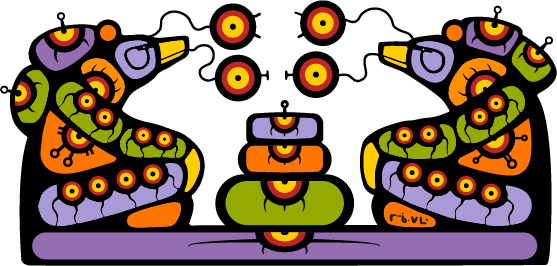Producer Natalie Langan–Learning to Speak Saulteaux
By Natalie Langan, Host and Producer of Akāni-nīkānītan
Growing up in a traditional Saulteaux home, hearing only Saulteaux, living off home-grown food and wild meat and going to ceremonies regularly, was the norm for me. I was raised by my paternal grandmother, Marjorie Kayseas. She only knew the Saulteaux language and the Saulteaux ways. My grandmother didn’t know how to speak, read, or write in English. She was the hardest and smartest working woman that I have ever known...and she was my Koko.
Growing up on Fishing Lake First Nation with and by my Koko, and going to school in the nearest town, was what I did. I didn’t think twice as to why I lived with my Koko and cousins and not my parents or siblings, this was my life, and it was normal. After school, I could always count on a hot meal waiting for me and then turning on the TV to watch 1 of 3 channels where the cartoons would play.
We lived a simple life. We had no plumbing or running water, we cut down trees and cut them into logs and used our wood burning stove for heat. We drank rainwater in the spring and summer months and then snow water all winter long. My Koko often snared rabbits. Everyday was a successful hunt and many family members provided fresh fish, deer, elk, moose, ducks, geese, and other animals. I would see her clean these animals and for me it was normal to see her skinning a deer and then cutting up the meat on the kitchen table. I just went about my day playing outside, waiting for her to call me in when she was done.
“We only ever communicated in Saulteaux, everything she said to me, I could understand. Me speaking back in Saulteaux, was normal, I never thought that it wasn’t. For me, to say what I needed and wanted, I had to tell her in Saulteaux, there was never any English spoken between us. Little did I know that she was passing down a tremendous, irreplaceable, and rare gift!”
If we weren’t going to ceremonies, we were having our own. I was a very small girl during this time, but I remember the prayers, the cloth, and smell of sweetgrass so vividly. We had family members travelling from great distances to participate and help my Koko. Aside from the prayers and the songs, the laughing, and eating were constant. I would sit there, listen to the many stories being told and then laugh along with all the family and elders when something funny was said –I didn’t think that it was weird that I could understand most, if not all, of what they were saying. It was such a great time, a golden time, an irreplaceable time, and now they are memories.
Time moved on and many things changed. Family moved away, children were growing up and moving on, and more and more modern things came to us. In the blink of an eye, the time came where Koko was aging, and sickness visited her too often. I wasn’t prepared for the changes that were going to happen, I truly thought that I would have my Koko with me for the rest of my life.
Nearly 20 years have passed since I was able to sit down and have a conversation with her. Over time, and her not being here, I have forgotten many words in my language. I am now making it my mission, my goal, and my responsibility to teach and pass on this beautiful language. I was given this language as a gift, and I will share it and do my best to preserve it and pass it on.
Thank you so much to pîkiskwêwin for encouraging me to use my language to reach out to people and to teach them. My podcasts are all dedicated to my late Koko, Marjorie Kayseas.


